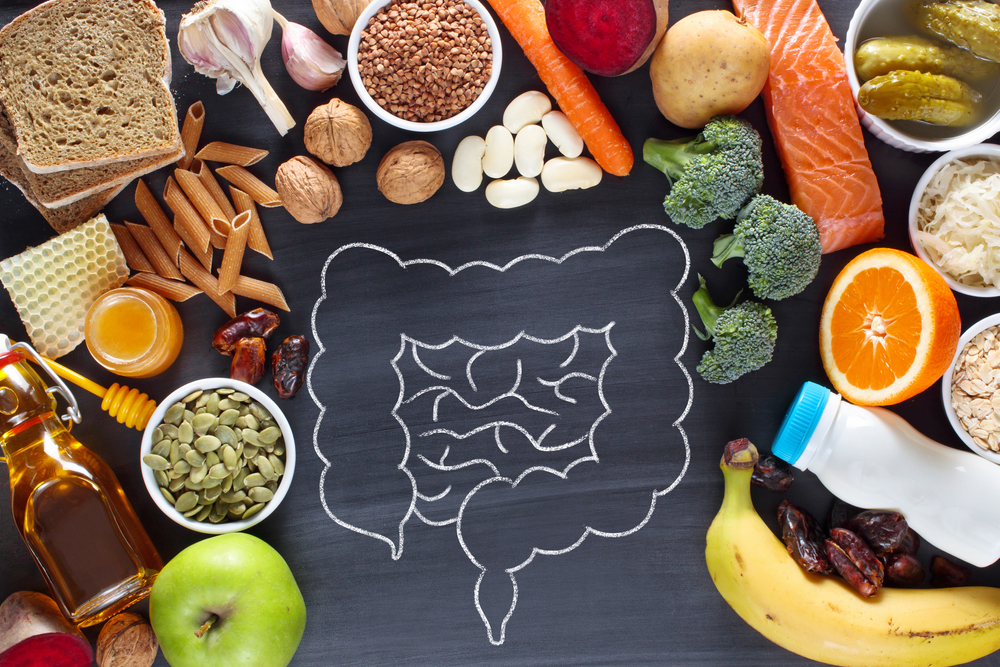Let’s cut to the chase: gut health matters. Your digestive system does the heavy lifting to process all the food you eat, extract nutrients, and absorb them into your body. But the modern world throws your gut lots of punches – from processed foods to antibiotics to chronic stress and beyond. Over time, these gut stressors can spark tummy troubles or harm your digestive tract.
The bright side? Research increasingly shows you can support your gut through lifestyle tweaks. Let’s explore four evidence-backed ways to nourish gut well-being for the long haul. Are you ready for better digestive health?
1. Fuel Your Gut with Fiber
You may have heard fiber is good for digestion – but did you know it also feeds the friendly microbes that line your intestines and support gut health? Fiber from whole plant foods acts as an all-you-can-eat buffet for beneficial gut bacteria, helping them thrive. And when your gut microbes are happy, your digestion hums along smoothly as well. It’s a win-win for better digestive function.
What’s the fiber sweet spot? Experts recommend getting 25-40 grams of fiber daily from sources like vegetables, fruits, whole grains, beans, nuts, and seeds. Slowly ramp up fiber intake if you’re starting from a low baseline. Suddenly blanketing your gut with a fiber feast can backfire, leading to gas or bloating.
Find non-gassy fiber sources that agree with your digestion. Aim for a minimum of five servings of plants spanning a rainbow of colors to deliver your gut a variety of nutrients and antioxidants too.
Pro Tip: A portion of cooked and cooled starchy carbs like potatoes, rice and pasta transform into something called resistant starch that feeds healthy gut bacteria. Simply cook your potato or rice and refrigerate for twelve hours. Even if you reheat a cooled bowl of rice of potatoes, you still retain the beneficial resistant starch.
Your digestive tract also converts this type of starch to short-chain fatty acids that are healthy for the lining of your gut due to their anti-inflammatory activity. So don’t give up potatoes. Just chill them after cooking for more gut benefits.
2. Say Bye to Gut-Disrupting Meds
Antibiotics are lifesavers for bacterial infections, but research reveals they blast away beneficial gut bacteria in the process – a form of unavoidable “friendly fire.” This collateral damage can throw off the balance of microbes in your microbiome, leading to antibiotic-associated diarrhea and other issues.
While antibiotics may be medically necessary in some cases, studies show people pop them when they don’t need them. Be an advocate for your gut health by taking antibiotics for diagnosed bacterial infections, not viral bugs they can’t touch anyway. Take the minimum effective course (discuss this with your doctor), space out courses when possible, and rebuild your gut flora with probiotic foods after. Every little bit counts in protecting your digestive ecosystem!
Other meds like antacids and pain relievers can disrupt gut health too. Opt for the lowest effective dose that gives symptom relief, weigh pros and cons with your doctor, and boost gut-friendly habits as a counterbalance. Think of it as nourishing your microbiome through nutrition versus nuking it with meds.
3. The Gut-Soothing Power of Prebiotics
What are prebiotics? Think of them as fertilizer for the trillions of beneficial bacteria that already live in your digestive tract. Prebiotics are a special form of dietary fiber that your body can’t digest, so they pass through and become gut bacteria food instead. They help your gut flourish, while supporting improved digestion and immunity. It’s a win-win.
Where do you track down these gut-feeding fibers? Sources include garlic, onions, leeks, asparagus, bananas, apples, cocoa, oats, flax, and chia seeds. Aim for a few daily servings of these prebiotic-rich foods to keep your microbiome well fed.
Just remember – prebiotics nourish what’s already there. They differ from probiotics, which are the live beneficial bugs themselves. For a one-two punch, combine prebiotic fibers with probiotic foods like yogurt, kefir, sauerkraut, and kimchi.
4. De-stress for Digestive Wellness
Here’s a gut check: does your stomach knot up when you’re stressed or anxious? Emotional stress activates the “fight-or-flight” nervous system, which can slow or shut down digestion. Plus, stress fuels inflammation, alters gut spasms, and changes microbiome composition – translating to tummy troubles.
The antidote? Carve out more daily downtime to activate your “rest and digest” nervous system. Relaxation practices like meditation, deep breathing, gentle yoga, nature immersion and mindfulness calm the body and support healthier digestion. One study even found that a mindfulness habit helped reduce IBS symptoms and improve gut-directed anxiety.
Don’t underestimate simple stress buffers either. Spending time with supportive friends, keeping a gratitude journal, pursuing hobbies, limiting work hours, and not skipping vacations also eases tension. Protect your precious gut by making stress relief a priority however fits your lifestyle. Your digestive tract will thank you.
Gut Issues Are Common but Lifestyle Makes a Difference
Gut issues may stem from multiple facets of modern life – whether antibiotics, meds, processed foods or just feeling frazzled and overwhelmed. But through lifestyle measures focused on whole foods, gut-friendly fibers, probiotics, stress relief and more, you can nourish your digestive system from the inside out.
Support your unique microbiome now for improved gut resilience and fewer tummy troubles down the road. But also know that gut issues may have other causes. So, see your doctor if you have persistent digestive issues or other symptoms.



